How IoT is changing the healthcare industry
The adoption of the Internet of Things (IoT) has revolutionized the way the healthcare industry now works, as it has huge potential and multiple applications, from remote monitoring to medical device integration. In healthcare, IoT is used for interconnected medical devices like monitoring systems, sensor machines, and detectors that capture real-time health information and store it on centralized cloud/servers for later analysis to obtain Better healthcare services. All the big players in the industry are trying to capitalize on this growth and improve their solutions or invest in adopting such technology.

Digital technologies that are transforming healthcare
Healthcare is about to change beyond recognition. The need to collect, store, and analyze patient data has driven the healthcare industry to adopt various trending digital technologies.
Internet of Things (IoT): IoT enables smart connected solutions such as smart sensors, wearable devices, and smart health monitoring systems to unlock potential growth in the healthcare industry by improving treatment using effective health tracking. The growing popularity of IoT in the healthcare and medical fields has enhanced modern technology known as the Internet of Medical Things (IoMT). IoT is an ecosystem of smart devices that communicate with each other and formulate outcomes in a real-time environment. This reduces human error to a great extent and eliminates a large amount of decision-making delays
Cloud Computing: The cloud helps us protect patient data and ensure compliance while allowing healthcare providers to continue delivering technologically advanced care, extending the patient experience into the digital space. Various public, private, and hybrid cloud platforms help us gain better access to patient records
Artificial Intelligence (AI): Artificial intelligence applications help improve the speed and accuracy of medical diagnosis. Artificial intelligence is used in the development of new medical products. It also helps automate repetitive tasks for medical staff such as routine paperwork, scheduling, and timesheets to increase efficiency and reduce costs. AI also helps doctors analyze historical patient data to identify any insights for better healing.

How can the application of IoT in healthcare bring change?
Wearable devices for tracking health vital signs: Wearable devices are electronic technologies or devices used to track a patient’s real-time health data such as blood sugar levels, blood pressure, heart rate, and other physical activities. Mobile apps collect health data from these devices and transmit the data to the cloud. Using data, doctors can analyze patients' health behaviors and make decisions to improve treatment. Fitness bands and smartwatches most popular among wearable homes with mobile apps
Smart Hospital: Paperless hospitals and clinics that use a central electronic health record (EHR) to manage patient data. Medical and billing records do not need to be kept in files and files. Storing such details in a cloud service makes it easy to access and manage. Smart hospitals offer healthcare organizations several benefits such as patient engagement, streamlined communication, hospital asset tracking, workflow optimization, and more.
Mobile health: The face-to-face interaction between patients and doctors is changing. Mobile health apps create a different way for doctors to care for their patients. Telemedicine, telemedicine, and remote patient health monitoring have significantly saved the lives of many patients during medical emergencies such as asthma attacks, heart failure, diabetes, or any other critical health condition. The use of mobile health apps and devices has gained popularity in clinical trials, and pharmaceutical giants are now setting their sights on connected drug delivery platforms.
Key Benefits Delivered by IoT in Healthcare
The Internet of Things is transforming the healthcare industry into the next decade when it comes to the way applications, devices, and people interact in delivering healthcare solutions. Here are some of the key benefits of adopting IoT in the healthcare industry:
Real-time monitoring – Smart medical devices provide patients with real-time personalized health status. They remind patients to check their regular health. In case of any medical emergency, such as heart failure or asthma attack, the device notifies you in advance and helps connect you directly to the doctor
Better patient experience – Internet connectivity to the healthcare system increases patient interest levels and doctors who are able to improve diagnostic accuracy with the help of real-time health data
Reduced costs – Using IoT solutions and connected medical devices, doctors can monitor patients remotely using real-time data, speeding up treatment and providing benefits such as continuous communication, reduced hospital resource usage, and travel expenses.

There are a few challenges in adopting digital technologies in healthcare
Digital healthcare systems leverage the Internet of Things and big data to establish seamless digital connections with patients. These systems are also increasingly connected via the internet to various types of medical wearable technology, helping us obtain real-time patient information. However, before digital healthcare can be adopted, several challenges need to be addressed:
Efficient data security is required to maintain patient privacy
Integration of multiple devices using different protocols increases complexity and slows down the data exchange process
The large amount of data stored requires efficient memory and data management technology
More Application-Related Electronic Components
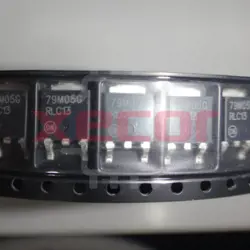
MC79M05CDTRKG
Linear regulators with negative feedback designed to provide a constant 5V output at a maximum current of 500mA
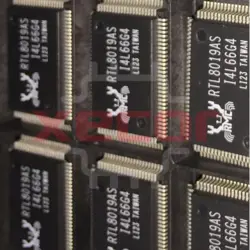
KSZ8895MQXIA
High-speed networking switch
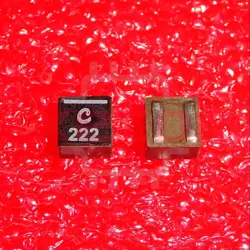
XGL4030-222MEC
2.2uH ±20% 7A 1616 Power Inductors ROHS
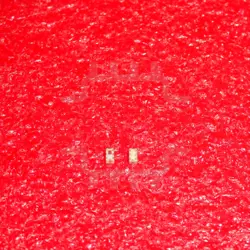
0900LP15B0063E
Ceramic Filters Low Pass 900MHz 0.9dB 50Ohm SMD 8Pin T/R
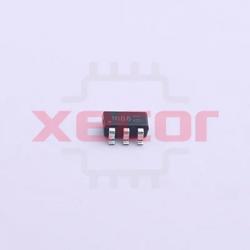
ZXMN10B08E6TA
ZXMN10B08E6TA is a N Channel MOSFET, featuring a voltage rating of 100V and a maximum current of 1.6A, with a low on-resistance of 230mΩ at 10V
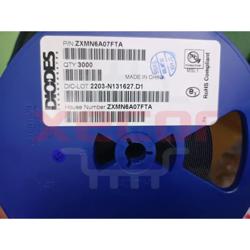
ZXMN6A07FTA
Small Signal Field-Effect Transistor
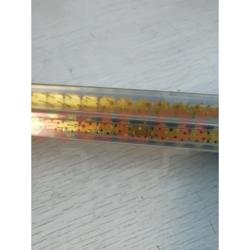
MLX90614ESF-DCI-000-TU
Digital Temperature Sensor MLX90614ESF-DCI-000-TU, Operating Range: -40°C to 85°C, TO39 Enclosure
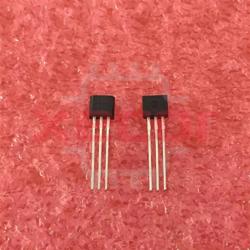
ZVN2106A
channel MOSFET with a voltage rating of 60V, current rating of 0.45A, and power dissipation of 0.7W, packaged in TO92
READ ALSO
-
How IoT solutions can help OEMs reduce costs in the aerospace industry Date: 04/10/2023
The potential of the Internet of Things in the aviation industry is endless. By effectively leveraging IoT, the aviation industry can focus on improving passenger safety, cost reduction, system maintenance, efficiency, safety, and customer experience.
-
How IoT is changing the healthcare industry Date: 04/10/2023
The adoption of the Internet of Things (IoT) has revolutionized the way the healthcare industry now works, as it has huge potential and multiple applications, from remote monitoring to medical device integration. In healthcare, IoT is used for interconnected medical devices like monitoring systems, sensor machines, and detectors that capture real-time health information and store it on centralized cloud/servers for later analysis to obtain Better healthcare services. All the big players in the i
-
IoT application processor chips and camera chips Date: 04/10/2023
In recent years, artificial intelligence technology and Internet of Things technology have gradually integrated and developed. Massive data is generated and collected through the Internet of Things and stored in device terminals, edges, and clouds. The data is then intelligently analyzed through machine learning, ultimately realizing the intelligent connection of all things data action, AIoT emerged as the times required. As the core component of AIoT equipment, the importance of chips has becom
